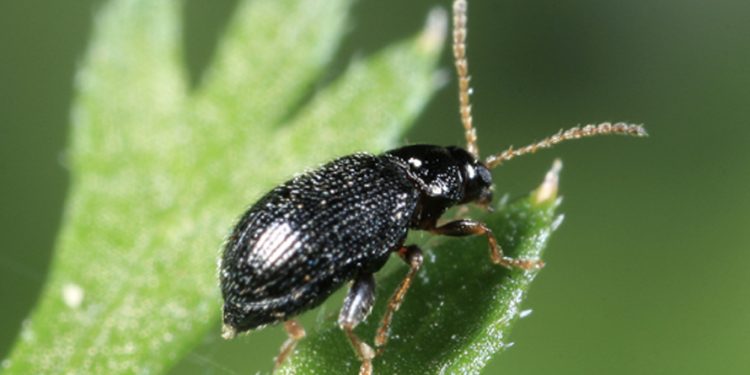Epitrix spp., commonly known as flea beetles, are a group of plant pests that can cause significant damage to crops such as potato, tomato, and eggplant. These beetles feed on the leaves, stems, and flowers of plants, leaving behind small holes that can weaken the plant and make it more susceptible to disease. Effective control measures are necessary to prevent significant crop losses, and the development of #EpitrixSppControl methods is critical.
One of the most common methods of controlling flea beetles is the use of chemical pesticides. However, the overuse of pesticides can lead to environmental pollution and the development of pesticide-resistant strains of Epitrix spp. To avoid these negative consequences, researchers are exploring alternative control methods, such as biological control, cultural control, and integrated pest management (IPM) strategies.
Biological control involves the use of natural enemies of Epitrix spp., such as parasitic wasps and predatory beetles, to reduce the population of flea beetles. Cultural control methods, such as crop rotation and sanitation practices, can also be effective in managing flea beetle populations. IPM strategies combine various control methods to achieve the best results.
The development of #EpitrixSppControl methods has several consequences. First, it can help to protect crops from damage and reduce the risk of significant losses for farmers. Second, it can reduce the use of chemical pesticides, which can have negative effects on the environment and human health. Third, it can promote the development of sustainable agriculture practices that balance pest management with environmental protection.
In conclusion, the development of effective #EpitrixSppControl methods is crucial to protect crops from damage caused by flea beetles while promoting sustainable agriculture practices. Biological control, cultural control, and IPM strategies are promising alternatives to chemical pesticides and can help to achieve these goals. It is essential to continue research efforts in this field to ensure that farmers have access to effective and sustainable control methods for Epitrix spp.







